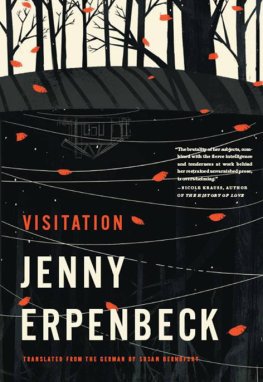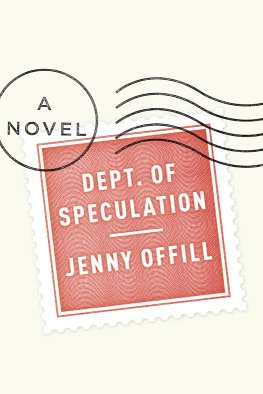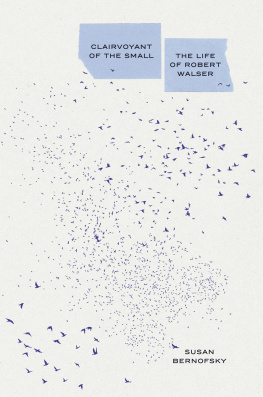Go, Went, Gone
Also by Jenny Erpenbeck
fiction
The Book of Words
The End of Days
The Old Child and Other Stories
Visitation
Copyright 2015 by Albrecht Knaus Verlag, a division of Verlagsgruppe Random House GmbH, Mnchen, Germany
Translation copyright 2017 by Susan Bernofsky
All rights reserved. Except for brief passages quoted in a newspaper, magazine, radio, television, or website review, no part of this book may be reproduced in any form or by any means, electronic or mechanical, including photocopying and recording, or by any information storage and retrieval system, without permission in writing from the Publisher.
 The translation of this work was supported by a grant from the Goethe-Institut, which is funded by the German Ministry of Foreign Affairs.
The translation of this work was supported by a grant from the Goethe-Institut, which is funded by the German Ministry of Foreign Affairs.
First published as a New Directions Paperbook (ndp1386) in 2017
Manufactured in the United States of America
Library of Congress Cataloging-in-Publication Data
Names: Erpenbeck, Jenny, 1967 author.
Title: Go, went, gone : a novel / Jenny Erpenbeck ; translated from the German by Susan Bernofsky.
Description: New York : New Directions Books, 2017.
Identifiers: LCCN 2017013730 | ISBN 9780811225946 (alk. paper)
Subjects: LCSH: RefugeesEuropeFiction.
Classification: LCC PT2665.R59 G3713 2015 | DDC 833/.92dc23
LC record available at https://lccn.loc.gov/2017013730
eISBN: 9780811225953
New Directions Books are published for James Laughlin
by New Directions Publishing Corporation
80 Eighth Avenue, New York 10011
For Wolfgang
For Franz
For my friends
God made the bulk; surfaces were invented by the devil.
Wolfgang Pauli
Even if its driving me crazy, I have to really force myself to kill an insect. I dont know if its out of pity. I dont think so. Maybe its just a matter of getting used to certain states of affairs and then attempting to find ones place among these existing states, an acquiescence.
Heiner Mller
In the end, we will remember not the words of our enemies, but the silence of our friends.
Martin Luther King, Jr.
Go, Went, Gone
1
P erhaps many more years still lie before him, or perhaps only a few. In any case, from now on Richard will no longer have to get up early to appear at the Institute. As of today, he has time plain and simple. Time to travel, people say. To read books. Proust. Dostoevsky. Time to listen to music. He doesnt know how long itll take him to get used to having time. In any case, his head still works just the same as before. Whats he going to do with the thoughts still thinking away inside his head? Hes had his share of success. And now? At least what passes for success. Hes published books and been invited to conferences, his lectures always filled up. Students were assigned his books to read, highlighting passages to learn by heart for their exams. Where are his students now? Some hold junior faculty positions, two or three are even tenured. Others he hasnt heard about in years.
Theres one hes still friendly with, and a few others drop him a line periodically. Thats how it is.
From his desk, he sees the lake.
Richard makes coffee.
Cup in hand, he goes out to the backyard to check for new molehills.
The lake lies placid before him, as it has all summer long.
Richard is waiting but he doesnt know for what. Time is now completely different. Suddenly different. He thinks. And then he thinks that, obviously, he cant stop thinking. The thinking is what he is, and at the same time its the machine that governs him. Even if hes all alone with his head now, he cant just stop thinking, obviously. Even if no one gives a hoot what he thinks.
For a brief moment he imagines an owl using its beak to flip the pages of his study, The Concept of the World in the Work of Lucretius.
He goes back in.
He asks himself whether its too warm to be wearing a blazer. Does he even need a blazer if hes just puttering around the house alone?
Years ago, when he learned by chance that his lover was cheating on him, the only thing that helped him get over his disappointment was turning this disappointment into work. For months, he made her behavior his object of inquiry. He wrote almost a hundred pages, investigating all the factors that led up to the betrayal, as well as the way in which the young woman had carried it out. His work had no particular impact on their relationship, as she left him for good not long after. But still these labors got him through the first few months after his discovery, months in which hed felt truly miserable. The best cure for love as Ovid knew centuries ago is work.
But now hes being tormented, not by time filled with pointless love but by time itself. Time is supposed to pass, but not just that. For an instant he has a vision of a furious owl tearing apart a book entitled On Waiting with its beak and talons.
Maybe a cardigan is more appropriate to his new condition. More comfortable, at any rate. And seeing that he no longer goes out in human society on a daily basis, its surely no longer necessary for him to shave every single morning. Let grow what will. Just stop putting up resistance or is that how dying begins? Could dying begin with this kind of growth? No, that cant be right, he thinks.
They still havent found the man at the bottom of the lake. It wasnt suicide. He died in a swimming accident. Ever since that day in June, the lake has been placid. Day after day, its been perfectly calm. Calm in June. Calm in July. And even now, with autumn on the way, it remains calm. No rowboats, no shrieking children, no fishermen. This summer, anyone diving headfirst off the dock at the public beach could only be an outsider who hasnt heard yet. While this bather is drying off after his swim, a local might address him whos out walking her dog, or a bicyclist who dismounts for a moment to ask: So you dont know? Richard has never mentioned the accident to an unsuspecting visitor: what would be the point? Why ruin things for someone whos just trying to enjoy the day? Strangers who walk past his garden gate on their outings return just as happy as they came.
But he cant avoid seeing the lake when he sits at his desk.
On the day it happened, he was in the city at the Institute, even though it was Sunday. That was back when he still had the master key that hes meanwhile turned in. It was one of those weekends hed spent trying to gradually empty out his office. All the drawers, the cabinets. At around one forty-five p.m., he had just been taking books from the shelves, the floor, the sofa, the armchair, the small table, and packing them into boxes. Twenty, twenty-five books at the bottom of each box, and on top of them things that weighed less: manuscripts, letters, paper clips, folders, old newspaper clippings. Pencils, pens, erasers, the letter scale. Thered been two rowboats nearby, but none of the people seated in them had the impression there was anything amiss. They saw the man waving his arm and thought it was a joke, they rowed off, leaving him behind or so hes heard. But no one knows who was in the rowboats. A few strong young men, apparently, who might have saved the day. But no one knows who they are. Or maybe they were afraid the man would pull them down with him, who knows.













 The translation of this work was supported by a grant from the Goethe-Institut, which is funded by the German Ministry of Foreign Affairs.
The translation of this work was supported by a grant from the Goethe-Institut, which is funded by the German Ministry of Foreign Affairs.